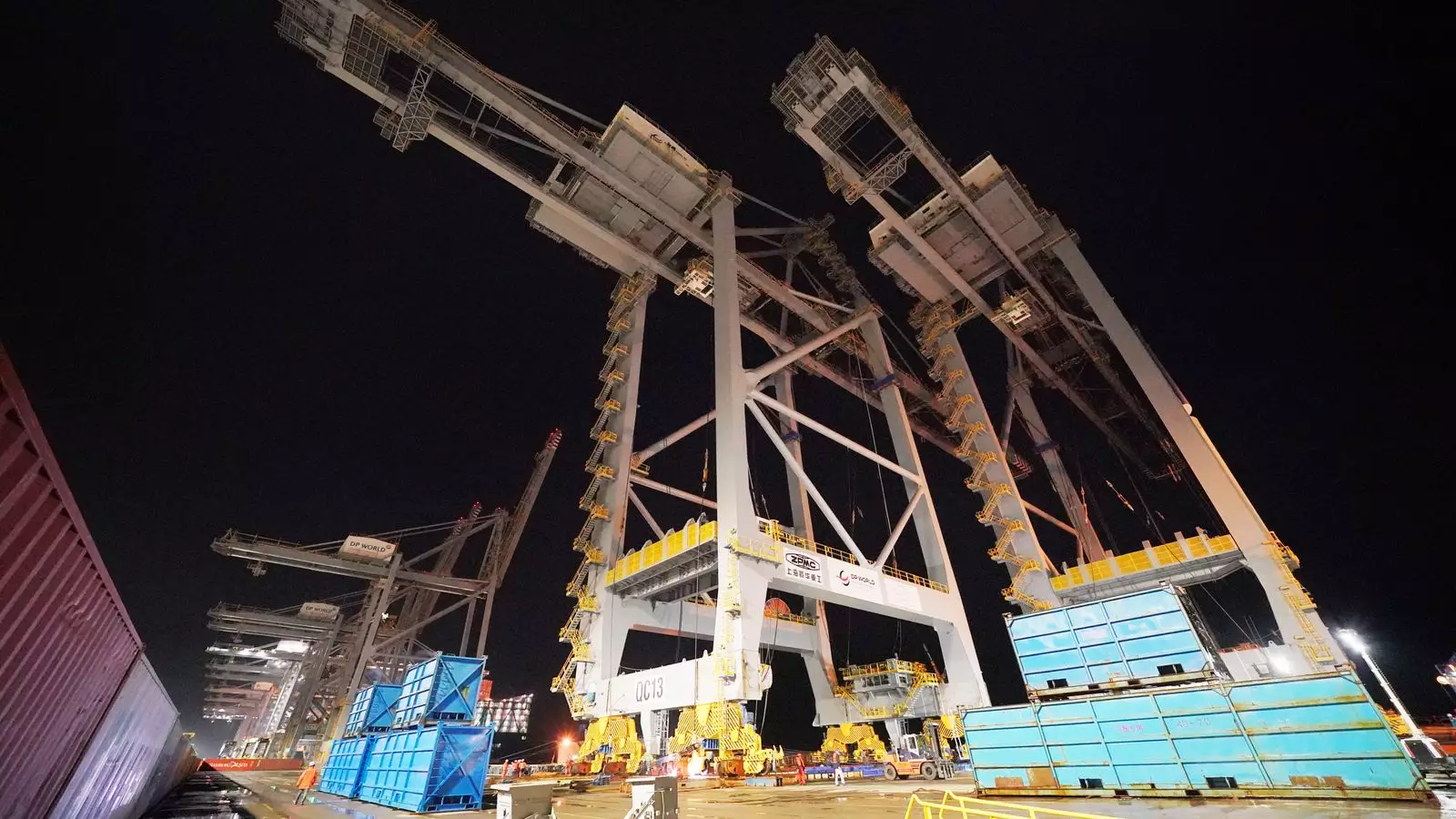The recent saga surrounding the £1 billion investment commitment by DP World has unveiled much about the precarious nature of government-business relations in the UK. Following remarks made by Transport Secretary Louise Haigh, which described the shipping company as a “rogue operator,” there were immediate concerns that this crucial investment could evaporate. This incident not only put the spotlight on the controversial practices of P&O Ferries but also raised questions about the government’s ability to maintain a stable investment climate amidst political friction.
The landmark pledge from DP World was intended to bolster the London Gateway port and signify a renewed commitment from foreign investors amid a turbulent economic landscape. The controversy ignited by the transport secretary’s statements drew attention to the complexities of labor practices within the shipping industry, specifically those of P&O Ferries, a DP World subsidiary. The firm had incited public outcry in March 2022 when it laid off 800 British seafarers, only to replace them with cheaper, predominantly foreign workers. This action was framed as a necessary step to avoid the company’s collapse, reflecting the difficult balance between operational viability and ethical employment practices.
Business and Trade Secretary Jonathan Reynolds acknowledged that discussions had taken place to address the fallout from Haigh’s comments. He refrained from revealing specific details but confirmed that the investment was secure—a clear indicator of the government’s proactive approach in salvaging both the investment and its reputation. The incident underscores the delicate interplay between political discourse and economic investment, particularly in a climate where every statement from a government official can significantly impact corporate confidence.
Politically, this scenario sheds light on Labour’s strategy as they maneuver within the new UK government structure. The investment summit, designed to attract up to 300 industry leaders, serves as a platform for revitalizing investments. However, the timing of this event, mere weeks before the proposed budget on 30 October, raises eyebrows. It appears to be a concerted effort by the government to showcase economic momentum while simultaneously adhering to previous promises made during the Labour campaign.
There is an inherent tension in the relationship between public policy and private investment, carefully illustrated by the backlash following the transport secretary’s comments. It raises a pertinent question: to what extent should political leaders scrutinize and voice opinions on corporate practices, especially when those words might destabilize significant foreign investments? The call for a boycott against DP World could resonate with many voters concerned about local jobs and economic practices but risks alienating foreign investors who might see the UK as a hostile business environment.
Interestingly, the summit also brings to light the absence of prominent figures such as Elon Musk. Reynolds’ response to Musk’s non-attendance reveals an intentional focus on strategic partnerships that promise substantial economic benefits rather than merely star power. The government appears to be curating its guest list carefully, emphasizing that not every high-profile personality aligns with the intended economic goals.
Musk’s previous criticisms of Labour leader Sir Keir Starmer on social media during tumultuous events in the UK, like the Southport riots, suggest underlying tensions between the tech mogul and the Labour party, further complicating the landscape. The government’s decision not to invite figures like Musk reflects a pragmatic approach, selecting participants based on their potential to influence meaningful economic outcomes rather than engaging in mere headline-grabbing.
As the UK navigates the complexities of post-pandemic recovery and the broader implications of global investment dynamics, the recent investment commitment by DP World should be seen as a double-edged sword. While it promises crucial economic input and job creation, it also lays bare the risks associated with political rhetoric that can jeopardize such commitments. The incident serves as a reminder of the essential need for coherent communication and strategic thinking among government officials, especially when engaging with sensitive issues regarding labor and corporate ethics.
The saga involving DP World not only highlights the precarious nature of foreign investment in the UK but also underscores the critical role that political dialogue plays in shaping the nation’s economic landscape. As the government prepares for the upcoming investment summit, it must remain vigilant, ensuring that its strategies align with fostering a robust and stable environment for business operations, where political pressures do not outweigh economic pragmatism.

Leave a Reply